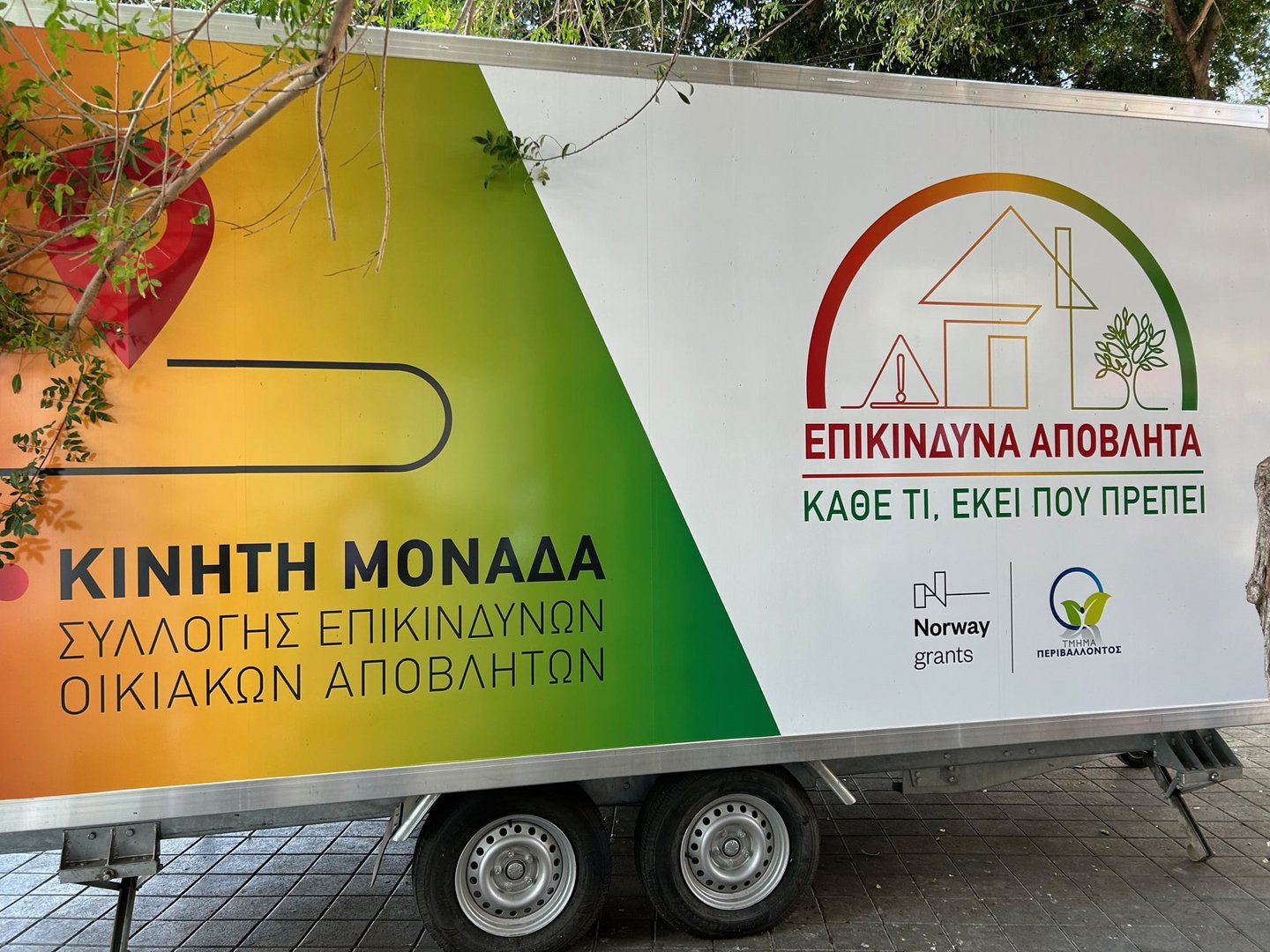Four mobile hazardous waste collection units are set to tour the country, with the aim of raising awareness about waste collection.
Agriculture minister Petros Xenophontos said the aim of the units is to inform and raise public awareness, with initiatives such as the mobile units, a new communication strategy, the use of electronic systems for data collection, as well as the creation of informative material.
It was launched in Nicosia in an event attended by Nicosia Mayor Constantinos Yiorkadjis and various local dignitaries.
“The initiative … entails visits to selected locations across Cyprus … to provide information on and collect hazardous waste,” Xenophontos said.
The units’ journeys across the island will begin on Monday in Nicosia before they are taken across Cyprus over the next six months. A total of 250 visits will be made to various towns and villages across the country, with the units set to remain in place for two or three days at a time before moving on.
Inside the units will be various bins into which people will be able to deposit their hazardous waste, which will then be disposed of.
During these visits, Xenophontos said, people will be informed about hazardous household waste and how to manage it.
“People will be able to drop off their hazardous waste at the mobile unit in the various bins set up inside. The units will collect waste such as batteries, small electrical devices, pesticides, fertilisers, insecticides, medicines, cleaning products, printer inks and toners, paints, solvents, varnishes, and lubricants,” he said.
He added that he hopes the units will visit “as many people as possible” within the scope of raising awareness.
Meanwhile, he said a public information campaign has been launched on the matter, with radio, billboards, and social media incorporated to reach as many people as possible.
Additionally, informative initiatives have been planned in conjunction with the local authorities in the places the units will visit.
The unveiling of the units marks the third stage of the government’s scheme regarding managing hazardous waste produced by households.
Xenophontos explained that waste is currently collected, pre-treated at the hazardous waste management centre in Ypsonas, and then either exported abroad for further processing or used for energy recovery at the Vassiliko Cement Works in Mari.
The government’s municipal waste management plan stretches to 2028, with the current initiative aimed at strengthening existing hazardous waste management systems.
The mobile hazardous waste collection units cost a total of €500,000 and was financed by the Norwegian Financial Mechanism.







Click here to change your cookie preferences